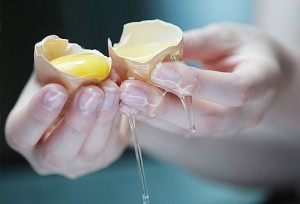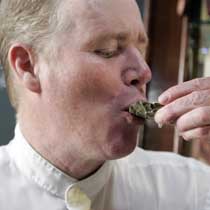Evidence and perception aren’t often congruent in the food safety world. There are lots of examples from the pages of the Internet: Dirty bathrooms are an indicator of sanitation in the kitchen; pathogens won’t transfer in less than five seconds when food hits the floor; and, yogurt is dangerous if consumed after the best-before date are just a few.
K. Aleisha Fetters of Yahoo News connected with Schaffner and I on the difference between refrigeration for safety and keeping stuff cool for spoilage and quality reasons.
Here are some excerpts.
Ketchup: Can remain at room temperature.
Ever wondered why restaurants keep ketchup on their tables rather than back in the fridge? Because it won’t make you sick, says Benjamin Chapman, PhD, associate professor and food safety extension specialist at North Carolina State University. Ketchup is so acidic that it prevents the growth of harmful bacteria. It will spoil faster if left out on the counter, but it could still take months to turn bad.
Fruits and vegetables: It depends.
If you think about it, fruits and vegetables grow outside at temps far higher than room temperature. That’s why, when they are whole, they are safe on your counter. However, when you cut them (or in the case of lettuce, just tear their stems from the ground), you actually rip open the cells of the plant. This releases nutrients, water, and bacteria, and allows them to mingle with each other, says food microbiologist Donald W. Schaffner, PhD, distinguished professor at Rutgers University. For example, when you cut a tomato or avocado, you need to keep it in the fridge to prevent the growth of salmonella. However, it’s worth noting that listeria can grow (albeit slowly) at cold temps. That’s why, even if you keep cut melons in the fridge, you should throw them out or add them to the compost pile after four days, Chapman says.
Mayonnaise: Must be refrigerated.
Well, this one is really more of an “it depends,” but we’re going to suggest sticking it in the fridge just in case. Most store-bought mayo is acidic enough to keep on the counter without it growing bad-for-you bacteria all by itself. (That’s why fast-food joints can keep it out in pumps until it’s used up.) But, if you cut some veggies with a knife, and then stick that knife in your jar of mayonnaise, you could potentially introduce bacteria into the mayo that is able to grow at room temperature, Chapman says. Meanwhile, whatever the recipe, homemade mayo is generally not acidic enough to fend off pathogens.
 Hepatitis A, norovirus (a type of viral gastroenteritis) and Shigella sonnei (a type of dysentery) infections were identified as the main threat from the berries.
Hepatitis A, norovirus (a type of viral gastroenteritis) and Shigella sonnei (a type of dysentery) infections were identified as the main threat from the berries.








